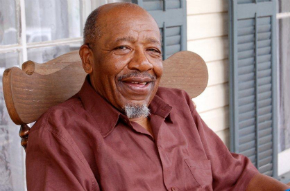Why I'm not looking for closure
One of the prevailing myths in North America’s mourning-avoidant culture is that within a relatively brief time after a loved one dies, we will want and receive closure. Living in liminal space and profound pain, we yearn to end such grief, to lose the sense that we’re on the bridge to nowhere. After our 25-year-old daughter Krista died while volunteering in Bolivia, as parents we heard the term often.
The concept emerges in sitcoms and crime shows, and in reporting after disasters and tragedies. So people assume it exists and therefore they need “to find closure.” I remember wondering, “Does this happen all at once, or in a particular season, like after the first year?”
But this popular language of closure proves disheartening, even destructive. Often the subtext is “It’s time to move on.” It offers a false hope and adds pressure when living with lifelong loss.
I heard a similar lament from Central American Christians after speaking this spring in Costa Rica at the Universidad Biblica Latinoamerica about my book Pilgrimage through Loss. The seminary sponsored a gathering for students and professors—plus psychologists, counselors, and pastors from the community, who also invited grieving families they knew. I wondered if what I had learned from interviews with parents in the United States would be relevant to a Latin American audience.
During a social time following the presentation, my translator, Lindy Scott, motioned toward three women consoling each other in the corner. “They seem really upset. You might want to go over to see what’s troubling them.”
With my elementary Spanish, I soon understood that the three women included the mother of a 21-year-old man who died, his fiancée, and his aunt who helped raise him from infancy like a second mother. “People are saying we are grieving too much,” his aunt lamented. “They expect us to move on now!” I wondered if they were near the one-year anniversary, a common time when pressure mounts. Then she added heart-breaking words. “He died just three weeks ago.”
Continuing bonds of remembrance
A valuable resource in understanding the power of this closure concept is Nancy Berns’s book Closure: The Rush to End Grief and What It Costs Us. “Our world came crashing down around us when our son was stillborn,” remembers Berns, a sociology professor. She finds that “we’re still picking up the pieces years later.” Prior to that, she was teaching and researching grief, bereavement, and criminal justice. Her personal loss became the lens for her ongoing grief-narrative research.
As the years passed, many encouraged her to “move on.” Some assumed she had already done so, which left her lonely and disconnected from others. But it also caused her to investigate society’s emphasis on closure, a relatively “new emotional term” for loss and grief. When closure doesn’t happen, people sometimes wonder if something is wrong with them for still missing one they deeply loved. Or, within just weeks or months, others may judge someone as being stuck in grief. This often leads to people burying their grief and bearing it silently. Berns writes, “Closure isn’t possible, it isn’t necessary, it isn’t wanted, and isn’t good.”
In her TEDx talk on the subject, Berns encourages other ways of healing that are possible, such as continuing bonds of remembrance.
 |
| Photo courtesy of John Perkins. |
While on my own pilgrimage through loss, I have been grateful for insights I gained from interviews with other grieving parents such as John Perkins, who also refuted the concept of closure.
Perkins, one of America’s leaders on racial reconciliation, lost his 40-year-old son Spencer to a heart attack. He was grateful for a conversation he’d had shortly before the tragedy with John Huffman, whose daughter died soon after graduating from college. “He told me," said Perkins, "contrary to what people thoughtlessly urged, that he never wanted to ‘get over’ his beloved daughter.” Perkins believed this sage advice prepared him to live with sorrow and forever love. “I’ve learned to release what I can, and embrace the pain that stays.”
Gentle assurance that lifelong remembrance and love—rather than closure—are normal offers a realistic gift to people in the pilgrimage of grief. There’s comfort during communion in hearing the words of Jesus, “Do this in remembrance of me.” He understood the power of forever love.




